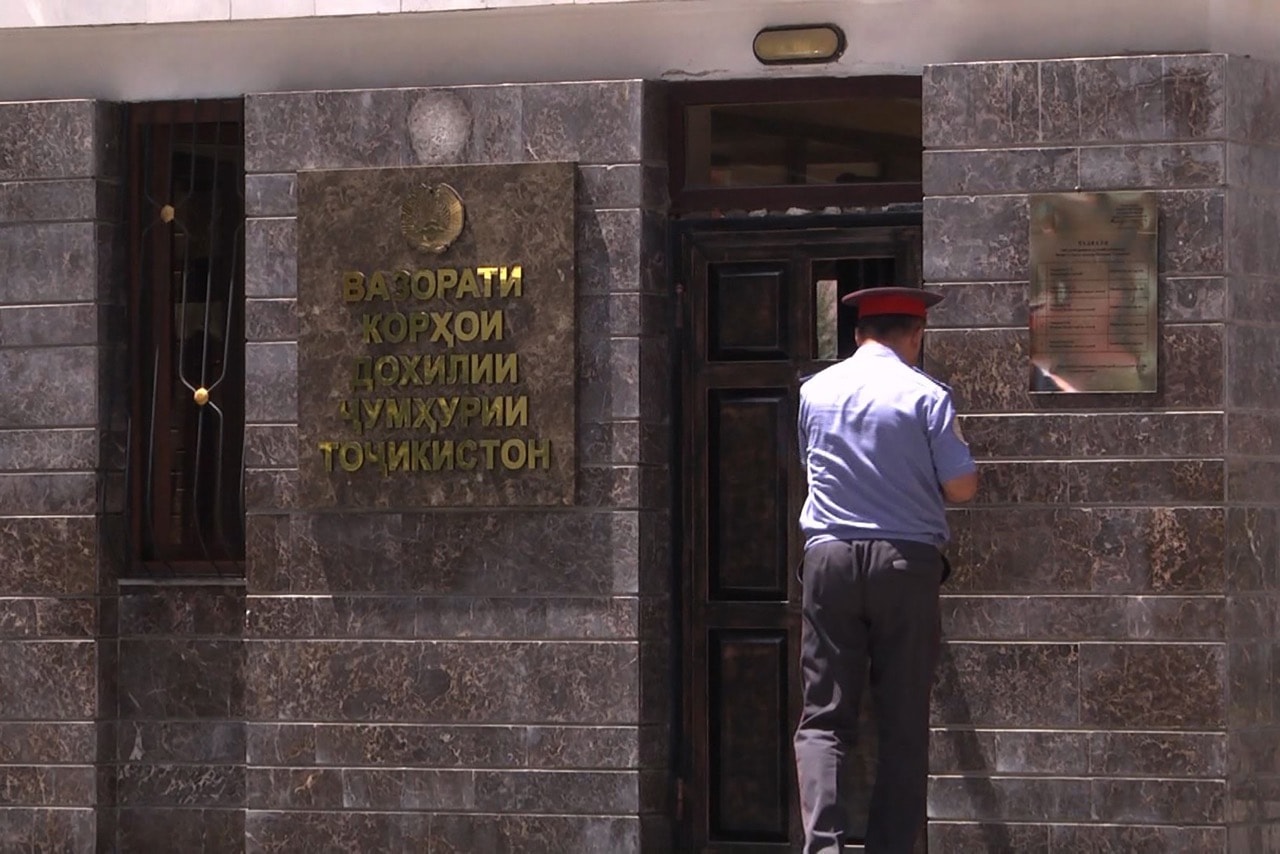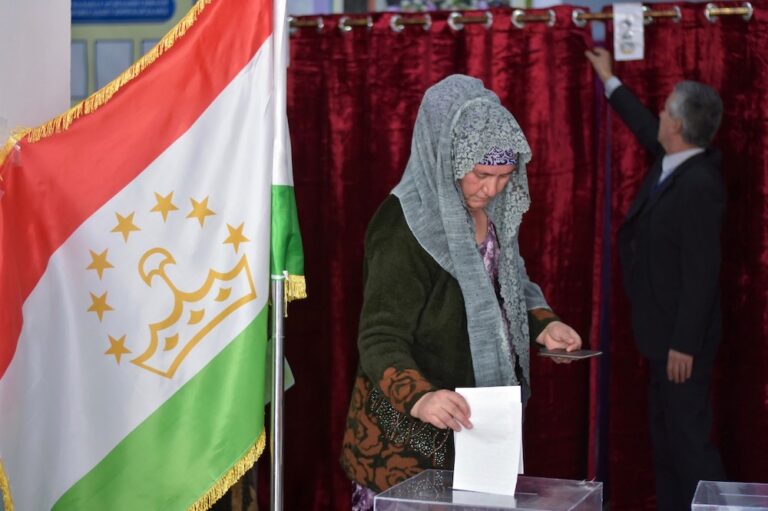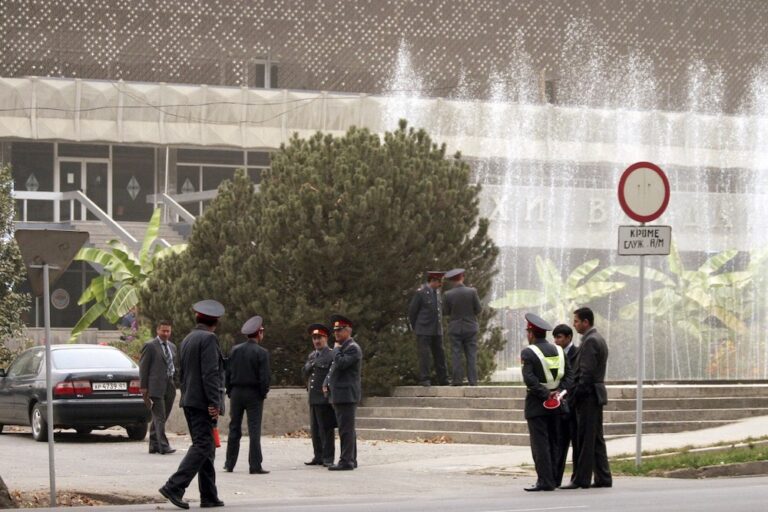Sharofiddin Gadoev has lived as a refugee in Holland since 2015; he was detained on a trip to Moscow and transported to Tajikistan where family members say he has been forced to denounce opposition figures publicly.
This statement was originally published on hrw.org on 24 February 2019.
Tajik and Russian officials arbitrarily detained and forcibly returned to Tajikistan a peaceful opposition activist while he was visiting Moscow, the Association of Central Asian Migrants, Association for Human Rights in Central Asia, Human Rights Watch, and the Norwegian Helsinki Committee said today.
The activist, Sharofiddin Gadoev, is being held in Tajikistan. The government has issued a series of choreographed videos and photographs designed to show that he “voluntarily” returned. Russian and Tajik officials beat him in Moscow and on the flight to Tajikistan. Gadoev should be released and allowed to return immediately to the Netherlands, his country of legal residence, the groups said.
“No amount of staged videos or photographs will change the awful truth that Tajikistan and Russia have shamelessly flouted their international obligations,” said Steve Swerdlow, Central Asia researcher for Human Rights Watch. “Sharofiddin Gadoev was arbitrarily detained in Russia, beaten, and spirited away to Tajikistan, where he faces trumped-up charges for his peaceful exercise of freedom of expression.”
Gadoev, 33, is a member of Tajikistan’s opposition National Alliance and the former deputy head of the banned Group 24 opposition political movement. On February 15, 2019, Tajikistan’s Interior Ministry announced that he had flown from Moscow to Dushanbe of his own accord to “surrender” to authorities at the airport for various crimes. Gadoev was taken into custody when the plane landed and remains in detention.
However, each day since, the government has displayed Gadoev in a series of orchestrated videos and photographs where he has been seen meeting with his mother, sister, and other acquaintances. In the videos, Gadoev states that he returned to Tajikistan of his own free will and denounces other opposition figures.
But Gadoev’s relatives and other sources investigating the case told Human Rights Watch that Russian and Tajik authorities used physical force to detain him in Moscow and forced him onto the plane. They say Gadoev’s statements on camera have been made under duress through physical and psychological pressure.
On February 19, Gadoev’s colleagues published a video recorded earlier by Gadoev in the Netherlands, in which he states:
If you see this video, it means I have been murdered, kidnapped or that I have gone missing… If I suddenly turn up on state television or on YouTube declaring that I am in Tajikistan and that I have returned of my own free will, you must not believe this. I would under no circumstance ever return to Tajikistan of my own free will.
Gadoev was the former deputy to the late head of Group 24, Umarali Kuvvatov, Gadoev’s cousin. Kuvvatov was shot dead in Istanbul in March 2015 under circumstances that pointed to involvement by Tajikistan’s security services. The Tajik government banned Group 24 in October 2014, and later designated it an extremist organization, arresting several members on vague and overly broad extremism charges.
Gadoev has lived in the Netherlands since 2015, where he is a recognized refugee. Tajik authorities have frequently interrogated and harassed several of Gadoev’s family members in Tajikistan as retaliation for his political activism.
On February 13, Gadoev flew from Amsterdam to Moscow with a round-trip ticket for meetings with officials from the Russian government’s Security Council regarding political developments in Tajikistan. Sources investigating the case say that on the afternoon of February 14, Russian security services officials met him at his hotel to drive him to a meeting.
Sources investigating Gadoev’s case learned that Russian security services officers in a second car stopped Gadoev’s car, forced Gadoev into their car, and drove him to Moscow’s Domodedovo airport. Relatives told Human Rights Watch that the officers beat Gadoev in the car.
The Russian officers, avoiding passport control, placed Gadoev on Somon Air, Flight 1223 to Dushanbe. The Tajik airline has links to the family of President Emomali Rahmon. On the flight, Gadoev was accompanied by officers from Tajikistan security services, who beat him and placed a sack over his head. Gadoev was delivered in that condition straight to Tajikistan’s Interior Ministry’s agency for the fight against organized crime early on the morning of February 15.
Since February 15, Gadoev has been in Interior Ministry custody, but also at times in the custody of the security services. Unidentified Tajik officials handed bloodied clothing belonging to Gadoev to his relatives on February 15. On February 20, Gadoev was reportedly transferred to house arrest, but officers from Tajikistan’s Interior Ministry and special forces (OMON) remained with him, and a day later he was moved to an undisclosed location by Tajikistan’s security services.
The Interior Ministry announced initially that he has been charged with possession of contraband under article 289(1) of Tajikistan’s criminal code and forgery under article 340. On February 21, a Dutch Foreign Ministry spokesperson told Radio Ozodi, the Tajik service of Radio Free Europe/Radio Liberty, that:
[t]he Tajik authorities have confirmed to the Dutch ministry of Foreign Affairs that Mr. Gadoev is in Tajikistan and was arrested on charges of criminal activities. At this time the Dutch MFA investigates whether and how it can assist Mr. Gadoev. We are following the case closely.
The Tajik government has carried out a severe human rights crackdown over the past five years, jailing hundreds of political activists and human rights lawyers and banning opposition parties. Human Rights Watch and the Norwegian Helsinki Committee have documented efforts by Tajik authorities to detain, imprison, and silence peaceful opposition activists and perceived critics at home and abroad. Since 2015, Dushanbe has sought the detention and forcible return to Tajikistan of peaceful political activists in Belarus, Kyrgyzstan, Kazakhstan, Moldova, Russia, Turkey, and elsewhere.
Russia is a member of the Council of Europe and party to the European Convention on Human Rights, and any involvement of, or acquiescence by, state agents in the extrajudicial transfer of Gadoev to Tajikistan is a serious violation of the convention.
In cases involving unlawful removal of people from Russia, the European Court of Human Rights has warned that:
…any extra-judicial transfer or extraordinary rendition, by its deliberate circumvention of due process, is an absolute negation of the rule of law and the values protected by the Convention. It therefore amounts to a violation of the most basic rights guaranteed by the Convention.
“If Dushanbe wants to be taken seriously, it should stop the smoke and mirrors,” said Marius Fossum, Norwegian Helsinki Committee Regional Representative in Central Asia. “There are troubling questions that Tajik authorities may have ill-treated Sharofiddin Gadoev. Tajikistan’s international partners, including diplomatic representatives on the ground, should seek access to visit with Gadoev and call on the Tajik government to provide him with unimpeded access to an attorney of his choice and visits with family members.”



